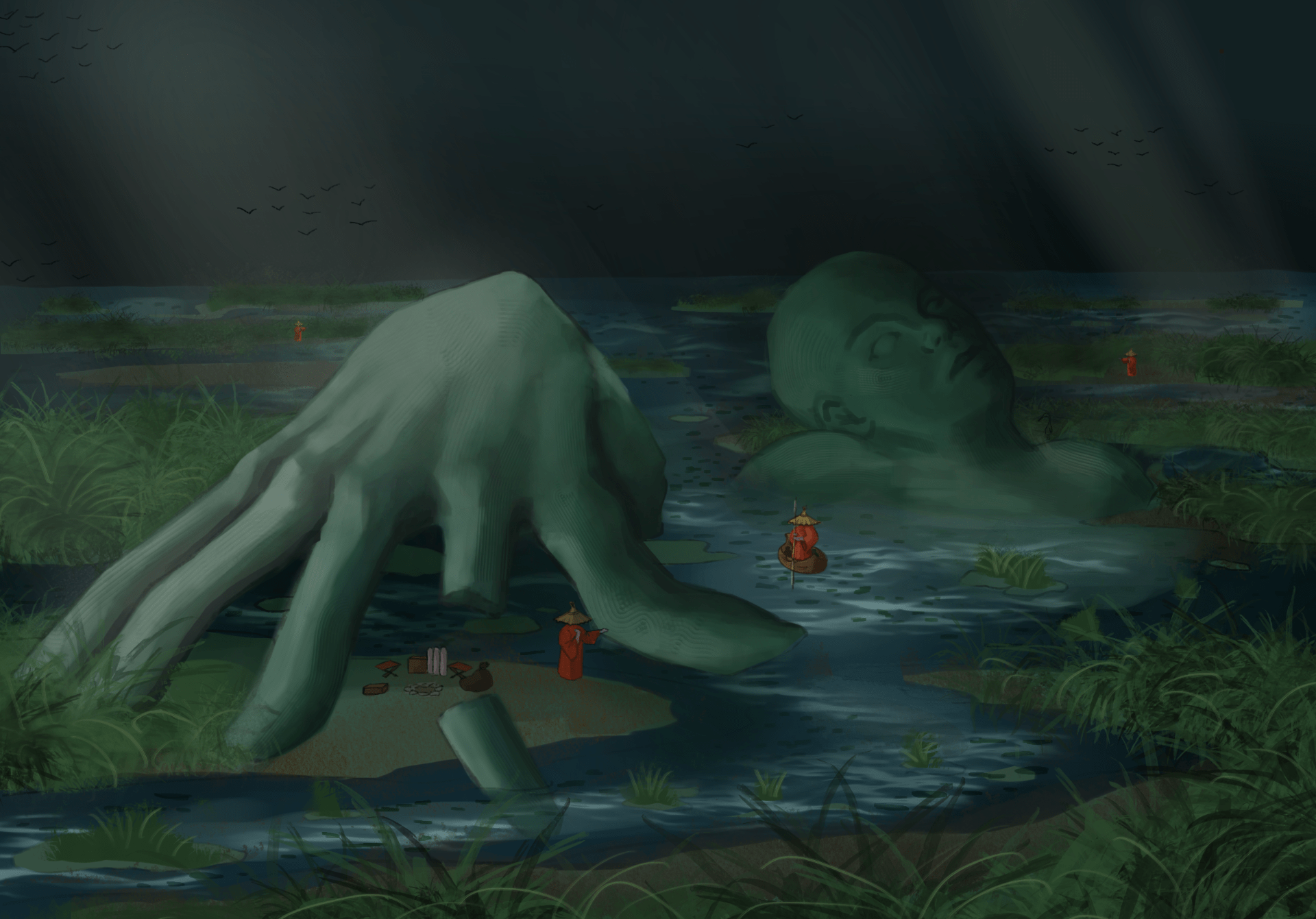By WILLOW DELP
“Reverence is nearly equivalent to veneration, but expresses something less of the same emotion.
It differs from awe in that it is not akin to the feeling of fear, dread, or terror, while also implying a certain amount of love or affection. We feel reverence for a parent and for an upright magistrate, but we stand in awe of a tyrant.”
–Century Dictionary
The dictionary is wrong. The dictionary is written by parents and upright magistrates and kings all ill-acquainted with true reverence, the reverence that makes you sob and beg and wail and grovel: I cannot do that, I cannot pay that, I cannot go to prison. I cannot spend the rest of my days bending to the will of the ocean currents. [You turn to the next page of the dictionary, and it casts a long shadow.]
The dictionary is incomplete. There is no awe without terror, no unconditional mercy. Reverence is unequivocal, needing, clinging, desperation, it gives and gives and gives, until the sacrifice becomes the last pennies, the last crumbs, the last hairs plucked from the last scalp. [The last grains of sand, burning in the Ogyian sun.]
The parent, the magistrate, the tyrant – for the child, there is no difference; the terror and awe are the same. They mix together like blood and spit and tears – they mingle in the same fleshy weakness. The parent, the magistrate, the tyrant: their skin is steel. Their blood is ichor. [You are the nymph Calypso, daughter of Atlas.] They have emigrated from the island of Reverence, resettled into the city of Revered, where everyone and no-one rules. [There is nowhere else to go.]
Writer | Willow Delp ’26 | wdelp26@amherst.edu
Editor | Davis Rennella ’24 | drennella24@amherst.edu
